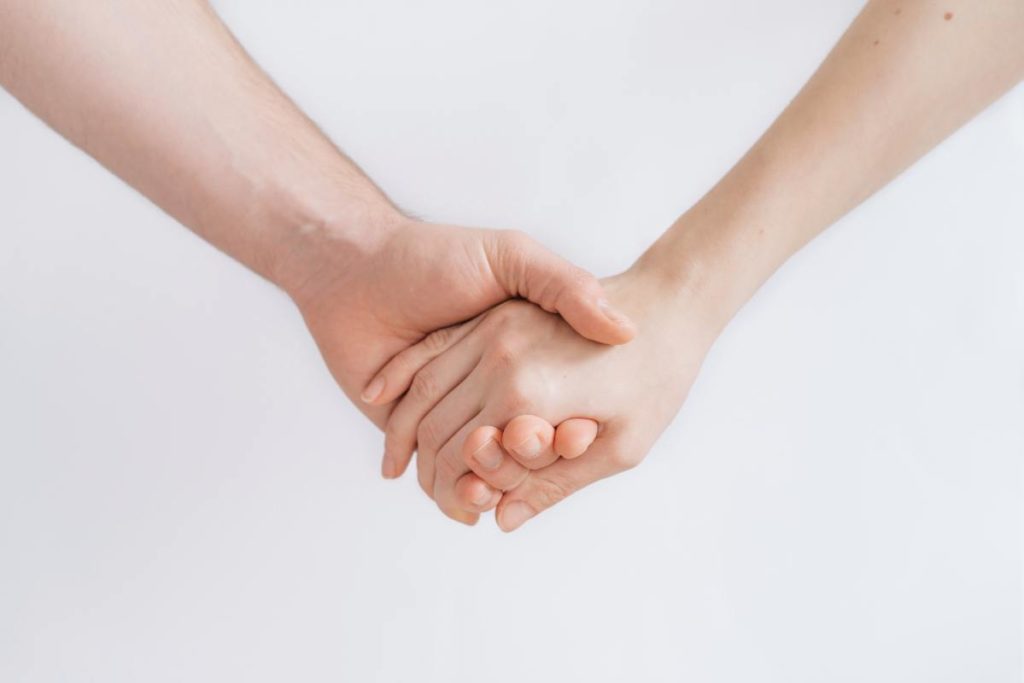
What is it?
Human beings are wired to be touched. From birth until the day we die, our need for physical contact remains.
Being a touch starved – likewise referred to as skin hunger or touch deprivation – takes place when a person experiences little to no touch from other living things.
Wait, that’s a genuine thing?
The condition seems to be more common in countries that are becoming progressively touch averse.
For example, determined to what degree individuals welcomed touch in 5 nations. Finland and France were found to be at the top, while the UK was at the bottom.
Why cultures differ in their acceptance of touch, no one makes sure. It may be due to the increase in innovation use, a worry of touching being considered as inappropriate, or cultural factors.
However has actually found that missing out on regular human touch can have some serious and long-lasting results.
Does it just apply to sensuous touch?
Certainly not. Any and all positive touch is thought about advantageous.
During the COVID-19 pandemic, many people are losing on office handshakes, friendly hugs, or pats on the back, which can result in sensations of touch starvation.
For some, the pandemic has actually likewise brought a decrease in sensual touching, such as holding hands, back scratching, and foot rubbing, too.
Scientists have found that a system of nerve fibers, called C-tactile afferents, exists to recognize any kind of gentle touch.
In fact, the perfect touching speed has to do with 3 centimeters per second.
This releases oxytocin, also called the “love hormonal agent.”
Why is touch crucial?
Skin-to-skin contact is essential not just for mental and psychological health but physical health, too.
When you feel snowed under or pressured, the body releases the stress hormonal agent cortisol. Among the biggest things touch can do is minimize such stress, enabling the body immune system to work the way it should.
Touch can also calm certain physical, such as your heart rate and blood pressure.
It does so by promoting pressure that transport signals to the vagus nerve. This nerve links the brain to the remainder of the body. It utilizes the signals to slow the rate of the nervous system.
In early life, touch is believed to be essential for developing healthy relationships by promoting pathways for oxytocin, the natural antidepressant serotonin, and the enjoyment neurotransmitter dopamine.
Plus, it can tackle solitude. Mild touch can reduce both discomfort and sensations of social exemption.
How do you know if you’re touch starved?
There’s no definitive method to know. But in a nutshell, you might feel extremely lonesome or deprived of love.
These symptoms may be combined with:
- sensations of anxiety
- anxiety
- stress
- low relationship satisfaction
- trouble sleeping
- a tendency to prevent safe and secure accessories
You may also subconsciously do things to mimic touch, such as taking long, hot baths or showers, wrapping up in blankets, and even holding on to a pet.
What if you do not particularly like being touched – can you still be touch starved?
Some people closely connect touch with trust. If they do not trust an individual, they’re not likely to desire that person to touch them. That does not indicate they don’t long for the advantages of a hug or handshake.
Not liking touch is often reported by individuals on the neurodiverse spectrum and people who are nonsexual.
It might likewise be a result of youth experience, recommends that individuals whose parents were regular huggers were more likely to hug people in adulthood.
Failing to experience regular positive touch as a child may affect the advancement of the oxytocin and the kid’s intimacy and social abilities – although this isn’t real for everybody.
What can you do to assist satiate this desire?
Touch starvation doesn’t need to last forever.
Here are some basic ways to invite more affection into your liferight now.
Bear in mind you might require to dial these activities back a bit during the COVID-19 pandemic, or avoid them till your regional health authorities give the OKAY:
- Try out a massage. Whether you ask a loved one or check out an expert, massages can assist you relax and take pleasure in the advantages of another person’s touch.
- Invest some quality time with animals. Frequently all too delighted to cuddle, pets are the ideal calming system. According to the Centers for Illness Control and Prevention (CDC) Trusted Source, the threat of animals sending the coronavirus to people is low, based on minimal info currently offered.
- Get your nails done. A manicure or pedicure might offer you the human contact you need, and a makeover to boot. When your local health department provides the OK, think of dressing up your hands and feet.
- Check out the hair salon. If you do not elegant a cut, book yourself a wash and blow-dry for ultimate relaxation.
- Find out to dance. Many sluggish dances are built around skin-to-skin contact. That might not be a great choice throughout the pandemic. As quickly as you’re vaccinated and your health department gives a thumbs-up, think about learning some new moves.
- Go to a cuddle celebration. Yes, these are real. And no, they’re not as odd as they sound. As quickly as you and your buddies are vaccinated and your health department gives the go-ahead for indoor events, think about trying it out.
What can you do to encourage affectionate touch in your daily?
With lockdowns, closed services, and medical advice to physically distance and prevent touching individuals not in your family, human touch has actually diminished to a sluggish stream. For some, it has dried up completely.
Medical facilities like the Department of Psychiatry and Behavioral Sciences at the University of California, San Francisco and the Texas Medical Center caution that touch hunger is real. It is essential to find methods to stay connected during the pandemic.
Sustaining regular touch throughout the COVID-19 pandemic can be challenging. If you deal with other individuals or become part of a pod, there are most likely people you can touch securely. You might try the pointers listed below.
For yourself
- Sit close to your liked ones Instead of spreading out on the sofa, make an effort to snuggle up throughout your Netflix sprees.
- Greet family members with a hug. If hugging people within your home or pod is safe, attempt this kind of welcoming. It may help both of you please your touch cravings.
- Usage touch when appropriate. In a romantic relationship, hold hands or cuddle. In platonic ones, reassure people with a touch to the arm or a pat on the back. Always make sure the touch is safe and other people are comfortable before going on.
For your loved ones.
- Provide a lot of positive touch. This can range from mild strokes to full-on snuggling a couple of times a day.
- Avoid associating touch with negativity. Don’t pinch or press or do anything that takes away the feel-good vibes of physical contact.
- Let children be close to you as frequently as possible. Permitting your child to rest on your lap or gently rubbing your child are necessary for bonding and the psychological growth of the child.
If you can’t touch safely
Perhaps you are among the 35.7 million Americans who live alone. Or possibly you deal with individuals who operate in high-risk settings. Or maybe touch in pandemic circumstances simply isn’t worth the danger to you.
In these and many other scenarios, you might not have the chance for touch, or you may not feel safe with any human touch right now. There are still methods you can help satisfy your touch cravings – without physical contact.
Attempt the tips below. They might not be the real thing, however they do provide human contact and interaction:
- Satisfy new individuals or get in touch with pals online. Technology provides lots of methods for online contact. Attempt video chat or virtual exercise classes or book clubs.
- Wave to next-door neighbors or passersby. Most of us take an everyday walk. Try waving and perhaps even satisfying new individuals, from a physical distance, naturally.
- Host an online shopper Invite family and friends to share a meal by means of a video app like Skype or FaceTime.
- Link via text and e-mail. Be sure to use lots of emojis or gifs that emphasize physical touch, like thumbs-up or waving hands.
- Talk with neighbors outside. Chat at a safe distance through a window or from a porch or backyard.
- Try brand-new outdoor group activities. Some group activities let you be with others without the danger involved in close quarters or touching. Attempt classes that involve physical distancing like yoga, painting, or tai chi.
Facebook Comments
